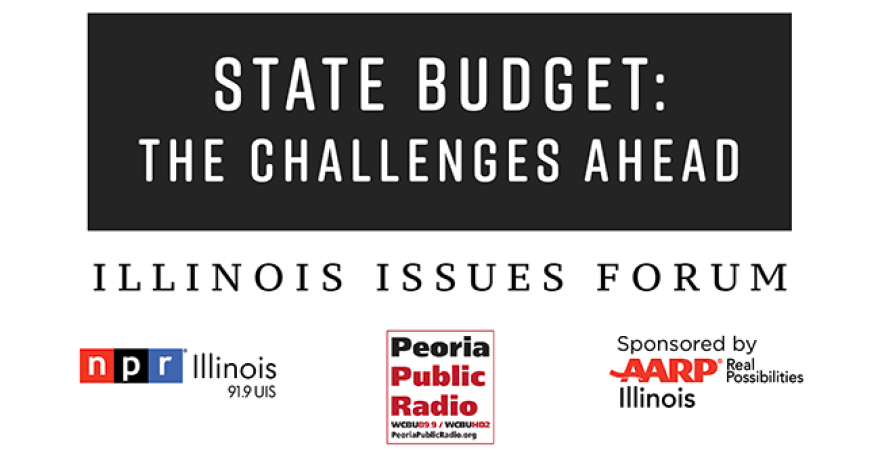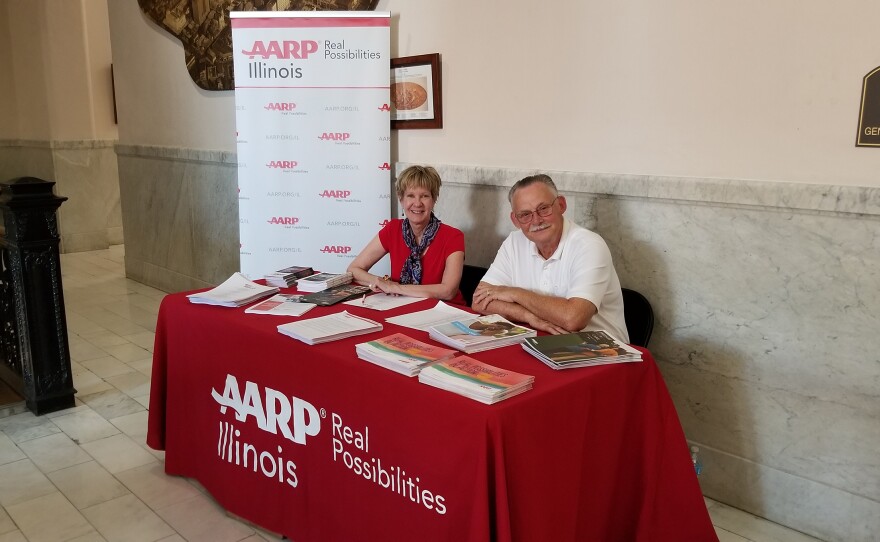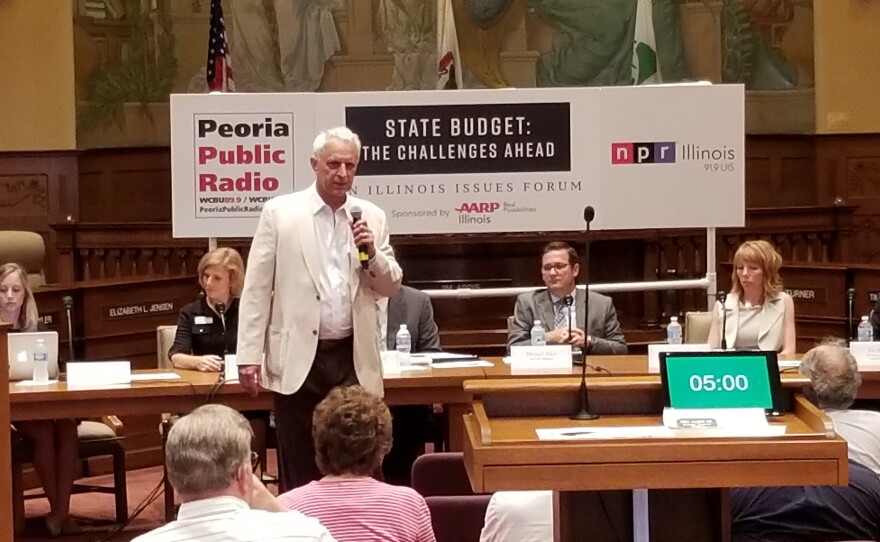
NPR Illinois continued its listening tour on the state's fiscal health co-hosting an Illinois Issues Forum in Peoria on July 20.
Community members attended to tell how they have been impacted by the state budget impasse.
Panelists included
- Michael Allen, CFO, OSF HealthCare
- Beth Crider Derry, Regional Superintendent, Peoria Regional Office of Education
- Jim Runyon, Chair of Illinois Partners for Human Service, Vice President of Strategic Initiatives and Government Affairs at Easter Seals Central Illinois
The forum was moderated by Peoria Public Radio News Director Tanya Koonce and NPR Illinois Managing Editor Sean Crawford.
Recap:
Having a state budget after a historic, two-year political gridlock is of little comfort to K-12 school districts, healthcare and human service providers.
That was the takeaway from the “State Budget: Past Due” forum held in Peoria City Hall on Thurs. It was the fourth in a statewide, public radio town hall series, sponsored by AARP.
Mike Allen, a panelist, is Chief Financial Officer of OSF Healthcare System. He says the state is 20 months behind in Medicaid and state employee insurance reimbursements, totaling about $143 million.
“While we are a large organization and we do have some scale, we’re able to survive a little better than smaller agencies," Allen said. "But it is starting to pinch our ability to deliver on our mission to serve everybody who comes through our doors.”
OSF includes 10 hospitals, and has an estimated 19,000 employees. Despite having a state budget, it’s still unclear in what order those payments might be made, when and if the cash flow is available.
Public school funding is also on hold, threatening some districts’ ability to open next month.
Peoria County Regional Superintendent of Schools Beth Crider Derry was one of the panelists. She says K-12 education funding is stuck in political gridlock over how it’s going to be distributed.
“There is no evidence-based formula! So I’m here to also sound the alarm. We are not out of the woods yet. We need an evidence based formula to be able to have money for schools to start," Crider Derry said.
She says school districts with a wealthy property tax base aren’t as concerned. But it’s a real problem for those like Peoria District 150 that depend heavily on general state aid funding.
And there are certain human service grant programs the Governor is threatening not to fund. That includes The Autism Program, or TAP. Autism-specific services are not covered by Medicaid.
Jim Runyon is the Vice President of Government Affairs for Easterseals Central Illinois. He is also the chairman of Illinois Partners for Human Services. Runyon says TAP is the only state funding that goes to assist children and families with autism.
But Gov. Rauner has said programs like that, that are grant-funded, he likely won’t fund. He has the power to do that. He’ll just say we’re not going to do that. Not going to give a contract, not going to allocate those funds. So we’re on again, off again, on again, off again. And for the families we serve that funding is really a lifeline.”
Runyon says TAP is a lifeline for those children and families it serves because autism specific services are not covered by Medicaid.
Watch the full video:

As someone who values being knowledgeable about Illinois, please support this public radio station by clicking on the, "Donate" button at the top of this page. If you're already a supporter, thank you!














